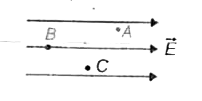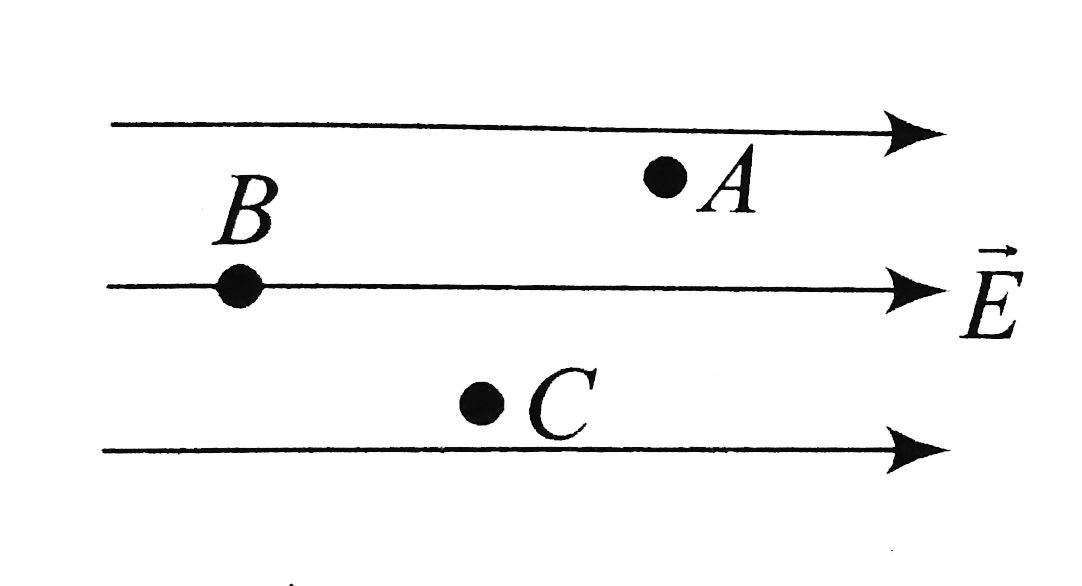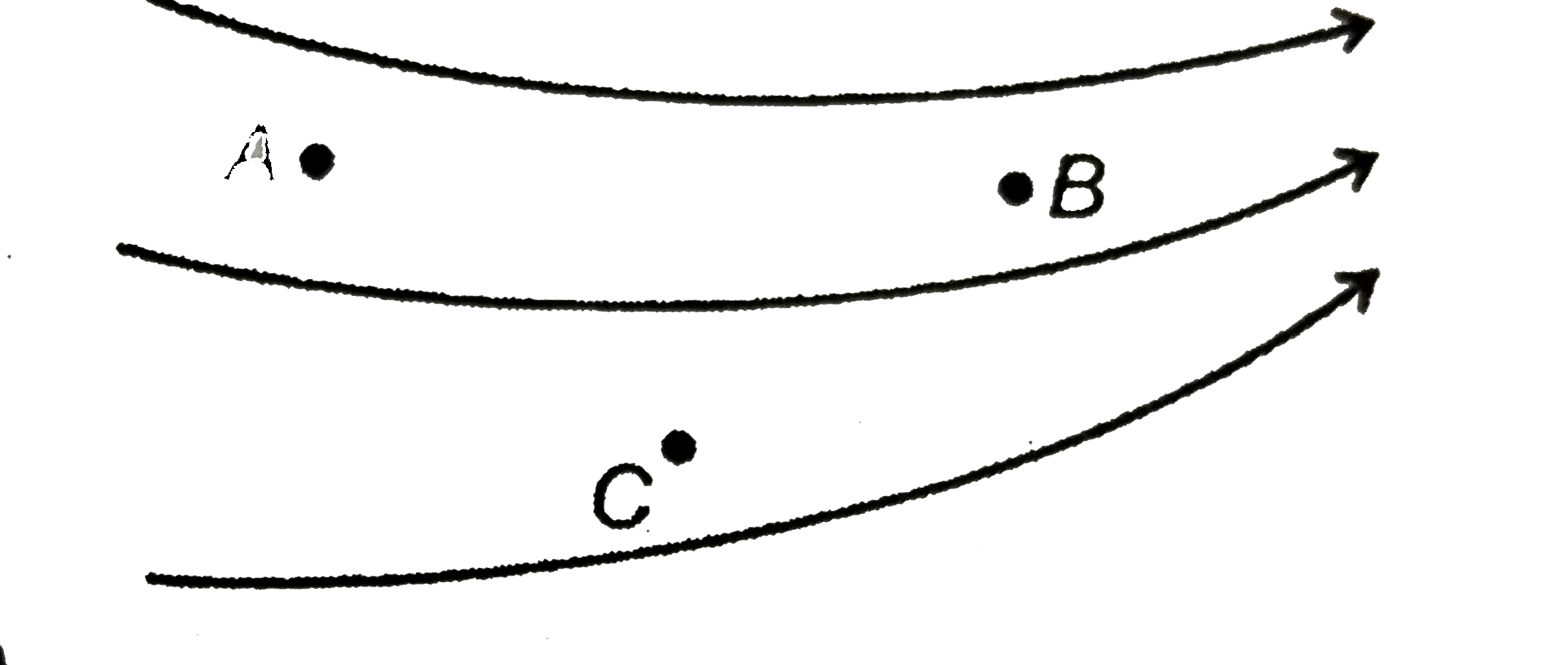A and B are two points in an electric field . If the work done in carrying 4.0C of electric charge from A to B is 16.0J, the potential difference between A and B is
zero
2.0V
4.0V
16.0V
The correct Answer is:C
Since WA→B=q(VB−VA)⇒VB−VA=164=4V
Topper's Solved these Questions
- ELECTROSTATIC POTENTIAL AND CAPACITANCEBook:DISHA PUBLICATIONChapter:ELECTROSTATIC POTENTIAL AND CAPACITANCEExercise:EXERCISE 2: CONCEPT APPLICATOR
Explore 24 Videos
- ELECTROSTATIC POTENTIAL AND CAPACITANCEBook:DISHA PUBLICATIONChapter:ELECTROSTATIC POTENTIAL AND CAPACITANCEExercise:EXERCISE 2: CONCEPT APPLICATOR
Explore 24 Videos
- ELECTROMAGNETIC WAVESBook:DISHA PUBLICATIONChapter:ELECTROMAGNETIC WAVESExercise:Exercise - 2 : Concept Applicator
Explore 30 Videos
- GRAVITATIONBook:DISHA PUBLICATIONChapter:GRAVITATIONExercise:EXERCISE-2
Explore 30 Videos
Similar Questions
Knowledge Check
A, B and C are three points in a uniform electric field. The electric potential is
 AMaximum at BBMaximum at CCSame at all the three points A, B and CDMaximum at A
AMaximum at BBMaximum at CCSame at all the three points A, B and CDMaximum at AA,B and C are three points in a unifrom electric field. The electric potential is
 AMaximum at ABMaximum at BCMaximum at CDSame at all three points A,B and C
AMaximum at ABMaximum at BCMaximum at CDSame at all three points A,B and CThe work done in moving a charge from one point to the other is 20J. If the potential difference between the points is 10V, the charge is:
A4.0CB2.0CC0.5CD1.0C
The work done in moving a charge of 20 C from A to B over a distance of 0.2 m is 2 J. The potential difference across A and B is _______.
View Solution5 J of work is done in moving a positive charge of 0.5C between two points. What is the potential difference between these points ?
View SolutionAn electron moves from a point A to a point B in an electric field and gains kinetic energy. Which of A and B is at a higher potential ? Explain.
If the potential difference between A and B is 1 volt, find the gain in kinetic energy of the electrons.
View SolutionThe work done in carrying an electron from point A to a point B in an electric is 10 MJ. The potential difference (VB−VA) is then
View SolutionA, B and C are three points in an electrostatics field. The electric potential is maximum at

View Solution